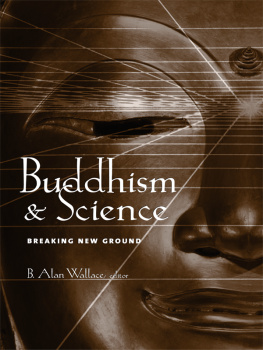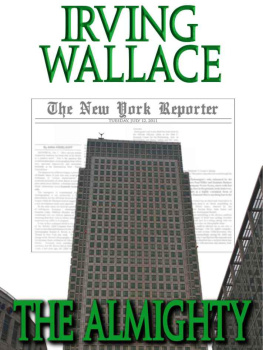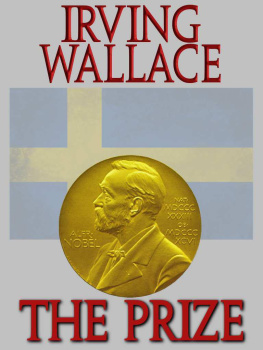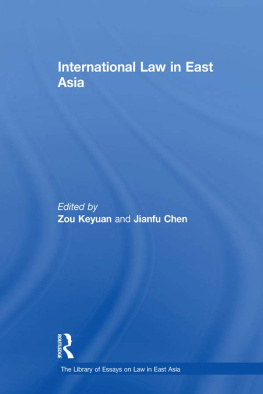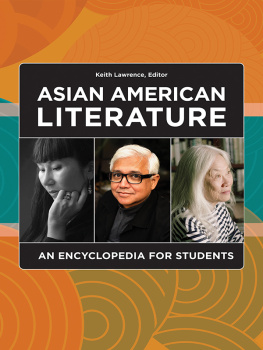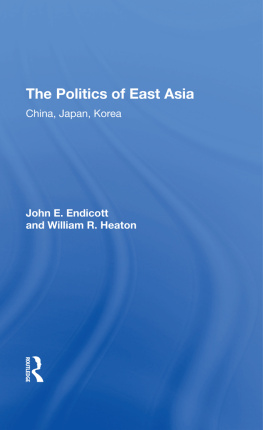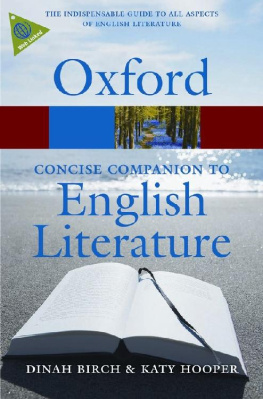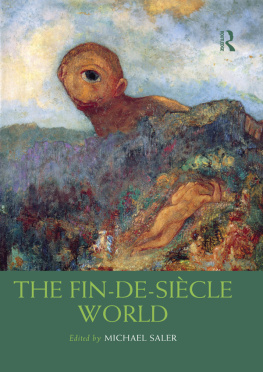Buddhism and Science
COLUMBIA SERIES IN SCIENCE AND RELIGION
Columbia Series in Science and Religion
SERIES EDITORS
Robert E. Pollack, Professor of Biological Sciences, Columbia University
Richard Bulliet, Professor of History, Columbia University
Roald Hoffman, Professor of Chemistry, Cornell University
Ryuichi Abe, Professor of Religion, Columbia University
ADVISORY BOARD
Rita Charon, Professor of Medicine, Columbia University
George Fisher, Professor of Earth Science, Johns Hopkins University
Wayne Proudfoot, Professor of Religion, Columbia University
Don Shriver, Emeritus, Union Theological Seminary
Adin Steinsaltz, Program in Judaism and the Life Sciences
Robert Thurman, Professor of Religion, Columbia University
The Columbia Series in Science and Religion consists of peer-reviewed scholarly and general interest titles that probe salient issues relating to science and religion. The series is a forum for the examination of issues that lie at the boundary of these two complementary ways of comprehending the world and our place in it. By examining the intersections between one or more of the sciences and one or more religions, the CSSR hopes to stimulate dialogue and encourage understanding.

Columbia University Press
Publishers Since 1893
New York Chichester, West Sussex
cup.columbia.edu
Copyright 2003 Columbia University Press
All rights reserved
E-ISBN 978-0-231-50735-6
Library of Congress Cataloging-in-Publication Data
Buddhism and science : breaking new ground / B. Alan Wallace, editor.
p. cm.
Includes bibliographical references and index.
ISBN 0-231-12334-5 (cloth : alk. paper)ISBN 0-231-12335-3 (pbk. : alk. paper)
1. Buddhism and science. I.Wallace, B. Alan.
BQ4570.S3 B836 2003
294.3375dc21
2002031502
A Columbia University Press E-book.
CUP would be pleased to hear about your reading experience with this e-book at .
Dedicated to the memory of Francisco J. Varela
(19462001)
WILLIAM L. AMES
William L. Ames has an M.S. in physics from the California Institute of Technology and a Ph.D. in Buddhist studies from the University of Washington. He has taught a course on physics and Buddhism at California Institute of Integral Studies. He is a coauthor of a paper on black holes and is the author of several papers on various aspects of the Madhyamaka school of Mahyna Buddhist thought. He is currently a librarian at Fisher Library at John F. Kennedy University in Orinda, California and is engaged in translating and publishing a number of chapters from an Indian Madhyamaka text, Bhvavivekas Prajpradipa.
MICHEL BITBOL
Michel Bitbol is directeur de recherche at the CNRS, at the Centre de Recherches en Epistemologie Appliquee (CREA), which depends on the Ecole Polytechnique, Paris. And he also teaches at the University Paris, and he is a permanent visiting member of Linacre College (Oxford). He was born in 1954, and obtained successively an M.D., a Ph.D. in physics, and a habilitation in philosophy in Paris. From 1980 to 1989 he worked as a researcher in biophysics. Then from 1990 on he specialized in the philosophy of physics. His main publications include Schrdingers philosophy of quantum mechanics (Kluwer, 1996), Mecanique quantique, une introduction philosophique (Flammarion, 1996), and Physique et philosophie de lesprit (Flammarion, 2000).
JOS IGNACIO CABEZN
Jos Ignacio Cabezn is the XIV Dalai Lama professor of Tibetan Buddhism and cultural studies at the University of California, Santa Barbara. He did his undergraduate work at Caltech, with an emphasis in physics, and his doctoral studies at the University of Wisconsin-Madison, in Buddhist studies. He was a Buddhist monk for ten years; six of them he spent engaged in the traditional curriculum of studies at Sera monastery in South India. He is the author/editor/ translator of several scholarly books and articles, among them A Dose of Emptiness, Buddhism and Language, Buddhism, Sexuality, and Gender, and Tibetan Literature (coedited with R. Jackson), and his most recent book, Scholasticism: Cross-Cultural and Comparative Perspectives.
HIS HOLINESS THE FOURTEENTH DALAI LAMA
His Holiness the Fourteenth Dalai Lama is the spiritual and temporal leader of Tibet and the 1989 recipient of the Nobel Peace Prize. An international advocate of nonviolence and premier representative of Buddhism in the modern world, he has a long-standing interest in science. Among his numerous encounters with scientists of the caliber of David Bohm and John Bell, since 1987, he has participated in a series of biannual conferences on Buddhism and science known as the Mind and Life conferences. Edited proceedings from these conferences have been published under the titles Gentle Bridges: Conversations with the Dalai Lama on the Sciences of Mind (Shambhala,1992), Sleeping, Dreaming, and Dying: An Exploration of Consciousness with the Dalai Lama (Wisdom, 1997), Healing Emotions: Conversations with the Dalai Lama on Mindfulness, Emotions, and Health (Shambhala,1997), and Consciousness at the Crossroads: Conversations with the Dalai Lama on Brainscience and Buddhism (Snow Lion, 1999).
NATALIE DEPRAZ
Natalie Depraz earned her Ph.D. in philosophy in 1993, focusing on the writings of Husserl and the phenomenology of intersubjectivity. Since 1997 she has been directrice de programme au Collge International de Philosophie (Paris), and since 2000 she has been matre de confrences en philosophie lUniversit de la Sorbonne (Paris IV). Her publications include Transcendance et incarnation. Le statut de lintersubjectivit comme altrit soi chez Husserl (Paris: Vrin,1995), Alterity and Facticity: New Perspectives on Husserl, edited with D. Zahavi (Dordrecht: Kluwer 1998), Lucidit du corps. De lempirisme transcendantal en phnomnologie (Dordrecht: Kluwer, 2001), and On Becoming Aware: An Experiential Pragmatics (with Fr. Varela and P. Vermersch) (Amsterdam: Benjamin, Amsterdam, forthcoming). She is the journal editor of Alter, revue de phnomnologie (Paris, 1993 onward) and Phenomenology and the Cognitive Sciences (with S. Gallagher and F. Varela; first issue to appear with Kluwer in January 2002).
DAVID RITZ FINKELSTEIN
David Ritz Finkelstein is working on a theory of nature as a neural network, a kind of quantum relativistic brain, in which nature operates as a quantum pattern of annihilations and creations. This research touches on quantum space-time, quantum logics, quantum set theory, elementary particles, and quantum gravity, and appears in journals like the Physical Review, Classical and Quantum Gravity, and International Journal of Theoretical Physics, which he edits, and in his recent book, Quantum Relativity. He was a student at Stuyvesant High School and City College in New York City and then at MIT. He now lives in Atlanta with his wife Shlomit and his daughter Aria, and works and studies at Georgia Tech with inspiring students of his own, such as James Baugh, Sukanya Chakrabarti, Andrej Galiautdinov, J. Michael Gibbs (former student), William Kallfelz, and Zhong Tang. His main scientific correspondent is Heinrich Saller of the Heisenberg Institute, Munich.
DAVID GALIN
David Galin earned his medical degree in 1961 at Albert Einstein College of Medicine, New York. He presently holds the position of associate professor in residence in the Department of Psychiatry, and he is the director of the Neurodevelopment Laboratory of the Langley Porter Neuropsychiatric Institute at the University of California School of Medicine, San Francisco. His research background includes four decades of neuro- and psychophysiology in animals and humans, and he has authored widely cited publications on the two halves of the brain, their differences and integration. He has also conducted research on dyslexia and on neuropsychological aspects of psychiatry. His current interests include religious experience from a neuropsychological perspective, theories of consciousness and the self, and rehabilitating the concept of spirit for the nonreligious and the scientifically minded.
Next page
